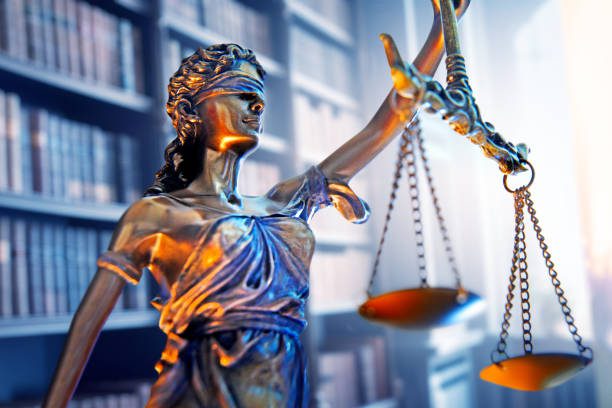A Comprehensive Guide to Navigating the Legal Process

The legal process can be complex and daunting, whether you’re dealing with a personal injury claim, family law matter, civil rights litigation, or any other legal issue. At Pinkston Law Group, P.C., we believe that understanding the legal process is essential for anyone seeking justice and legal remedies. In this comprehensive guide, we will demystify the legal process, providing you with insights into the steps involved, key players, and important considerations. By the end of this article, you’ll be better equipped to navigate the legal system with confidence and clarity.
Legal Process: An Introduction
- Overview of the Legal System
The legal system is the framework within which disputes are resolved and justice is administered. It consists of various components, including laws, courts, legal professionals, and established procedures. Understanding the legal system’s structure and how it operates is fundamental to navigating any legal matter.
- Types of Legal Cases
Legal cases encompass a wide range of issues, from personal injury claims to divorce proceedings, business disputes, and more. The type of case you’re involved in will dictate the specific legal process you’ll follow. Here are some common types of legal cases:
- Personal Injury: Involves claims for injuries caused by the negligence or wrongful actions of others.
- Family Law: Addresses matters such as divorce, child custody, spousal support, and adoption.
- Civil Rights Litigation: Focuses on violations of individuals’ civil rights, often against government entities.
- Employment Law: Deals with workplace issues, including discrimination, wrongful termination, and wage disputes.
- Criminal Law: Addresses violations of criminal statutes, with potential penalties such as fines or imprisonment.
Before You Take a Legal Action…
- Assessing Your Situation
Before initiating legal action, it’s crucial to assess your situation carefully. Determine the nature of the dispute, the parties involved, and the desired outcome. Consider the strengths and weaknesses of your case, as well as the potential costs and time involved in pursuing legal remedies.
- Seeking Legal Counsel
Consulting with an attorney is often the first step in the legal process. An experienced attorney can evaluate your case, provide legal advice, and guide you on the best course of action. They can help you understand your rights, responsibilities, and potential legal remedies.
- Alternatives to Litigation
Not all disputes require litigation. Alternative dispute resolution (ADR) methods, such as mediation and arbitration, offer alternatives to going to court. These methods can be faster and less adversarial, allowing parties to reach mutually agreeable resolutions without a trial.
Initiating Legal Action
- Filing a Lawsuit
If you decide to pursue legal action, you’ll need to file a lawsuit in the appropriate court. This involves preparing and submitting legal documents, known as a complaint or petition, outlining your claims and the relief you seek. The court then issues a summons to notify the opposing party of the lawsuit.
- Service of Process
After filing a lawsuit, the opposing party must be served with the legal documents to inform them of the pending case. Proper service of process is critical to ensure that the defendant has notice of the lawsuit and an opportunity to respond.
- Responding to a Lawsuit
If you’ve been served with a lawsuit, you have a specific timeframe to respond. Typically, you must file an answer or other responsive pleading that addresses the allegations in the complaint. Failing to respond can result in a default judgment against you.
- The Discovery Phase
1. Gathering Evidence
The discovery phase is a critical part of the legal process where both parties exchange information and evidence related to the case. This can include documents, records, emails, and other relevant materials. Properly gathering and organizing evidence is essential to build a strong case.
2. Depositions
Depositions involve taking sworn, out-of-court testimony from witnesses, including parties involved in the lawsuit. Depositions allow attorneys to ask questions and gather information from witnesses, and the testimony can be used as evidence during trial.
3. Interrogatories and Requests for Documents
Parties in a lawsuit can also request written responses to questions (interrogatories) and request specific documents or records (requests for documents) from each other. These tools help parties obtain information and evidence to support their claims or defenses.
Settlement Negotiations
- Understanding Settlements
Settlement negotiations occur at various stages of a legal case, allowing parties to resolve their disputes without going to trial. A settlement is a legally binding agreement that outlines the terms and conditions both parties agree to. Settlements can provide a faster and less costly resolution than a trial.
- Mediation and Arbitration
Mediation and arbitration are forms of alternative dispute resolution used to facilitate settlement negotiations. In mediation, a neutral third party (mediator) helps the parties reach an agreement. In arbitration, a neutral arbitrator makes a binding decision based on the evidence presented.
- Negotiating with Opposing Parties
Effective negotiation is a crucial skill in the legal process. Attorneys and parties must communicate and negotiate with opposing parties to reach mutually acceptable outcomes. Negotiations can involve settlement offers, compromises, and concessions to resolve disputes.
The Trial Process
- Preparing for Trial
If a settlement cannot be reached, the case proceeds to trial. Trial preparation includes finalizing evidence, identifying witnesses, and developing legal arguments. Attorneys create trial strategies and may engage in pre-trial motions to address legal issues.
- Presenting Your Case
At trial, both parties present their cases before a judge and, in some cases, a jury. This involves presenting evidence, examining witnesses, and making legal arguments. The plaintiff (or prosecution in criminal cases) presents their case first, followed by the defendant’s case.
- Verdict and Judgment
After both sides present their cases, the judge or jury deliberates and issues a verdict. In civil cases, a verdict determines liability and, if applicable, the amount of damages awarded. Once a judgment is entered, it becomes legally enforceable.
Post-Trial Proceedings
- Appeals
If a party is dissatisfied with the trial court’s decision, they may have the option to appeal to a higher court. Appeals involve reviewing the trial record for legal errors or misconduct that may have influenced the outcome. Successful appeals can result in a new trial or modified judgment.
- Enforcement of Judgments
Once a judgment is entered in favor of a party, the winning party may need to take steps to enforce the judgment and collect the awarded damages. This can involve various legal mechanisms, including garnishments, liens, and asset seizures.
The Call to Action
Why Choose Pinkston Law Group, P.C.
Navigating the legal process can be challenging, and having experienced legal representation can make a significant difference in the outcome of your case. At Pinkston Law Group, P.C., we are dedicated to providing exceptional legal services and advocating for our clients’ rights and interests.
Contact Us Today
If you’re facing a legal issue, don’t go through it alone. Contact Pinkston Law Group, P.C. today to schedule a consultation. Our team of experienced attorneys is here to guide you through the legal process, answer your questions, and help you achieve the best possible outcome.
Understanding the legal process is the first step toward protecting your rights and seeking justice. Let us be your trusted partners in navigating the legal system. Contact Pinkston Law Group, P.C. today and take the first step toward resolving your legal matter with confidence and clarity.





